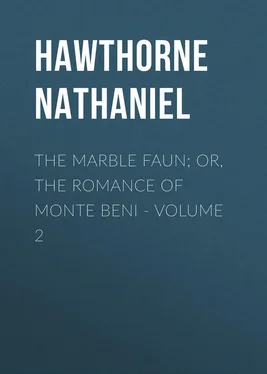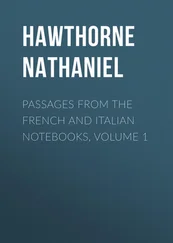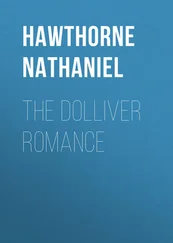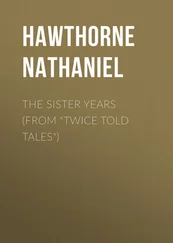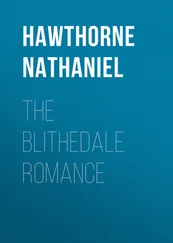Nathaniel Hawthorne - The Marble Faun; Or, The Romance of Monte Beni - Volume 2
Здесь есть возможность читать онлайн «Nathaniel Hawthorne - The Marble Faun; Or, The Romance of Monte Beni - Volume 2» — ознакомительный отрывок электронной книги совершенно бесплатно, а после прочтения отрывка купить полную версию. В некоторых случаях можно слушать аудио, скачать через торрент в формате fb2 и присутствует краткое содержание. Жанр: literature_19, foreign_antique, foreign_prose, на английском языке. Описание произведения, (предисловие) а так же отзывы посетителей доступны на портале библиотеки ЛибКат.
- Название:The Marble Faun; Or, The Romance of Monte Beni - Volume 2
- Автор:
- Жанр:
- Год:неизвестен
- ISBN:нет данных
- Рейтинг книги:3 / 5. Голосов: 1
-
Избранное:Добавить в избранное
- Отзывы:
-
Ваша оценка:
- 60
- 1
- 2
- 3
- 4
- 5
The Marble Faun; Or, The Romance of Monte Beni - Volume 2: краткое содержание, описание и аннотация
Предлагаем к чтению аннотацию, описание, краткое содержание или предисловие (зависит от того, что написал сам автор книги «The Marble Faun; Or, The Romance of Monte Beni - Volume 2»). Если вы не нашли необходимую информацию о книге — напишите в комментариях, мы постараемся отыскать её.
The Marble Faun; Or, The Romance of Monte Beni - Volume 2 — читать онлайн ознакомительный отрывок
Ниже представлен текст книги, разбитый по страницам. Система сохранения места последней прочитанной страницы, позволяет с удобством читать онлайн бесплатно книгу «The Marble Faun; Or, The Romance of Monte Beni - Volume 2», без необходимости каждый раз заново искать на чём Вы остановились. Поставьте закладку, и сможете в любой момент перейти на страницу, на которой закончили чтение.
Интервал:
Закладка:
“This is a wine,” observed the Count, “the secret of making which has been kept in our family for centuries upon centuries; nor would it avail any man to steal the secret, unless he could also steal the vineyard, in which alone the Monte Beni grape can be produced. There is little else left me, save that patch of vines. Taste some of their juice, and tell me whether it is worthy to be called Sunshine! for that is its name.” “A glorious name, too!” cried the sculptor. “Taste it,” said Donatello, filling his friend’s glass, and pouring likewise a little into his own. “But first smell its fragrance; for the wine is very lavish of it, and will scatter it all abroad.”
“Ah, how exquisite!” said Kenyon. “No other wine has a bouquet like this. The flavor must be rare, indeed, if it fulfill the promise of this fragrance, which is like the airy sweetness of youthful hopes, that no realities will ever satisfy!”
This invaluable liquor was of a pale golden hue, like other of the rarest Italian wines, and, if carelessly and irreligiously quaffed, might have been mistaken for a very fine sort of champagne. It was not, however, an effervescing wine, although its delicate piquancy produced a somewhat similar effect upon the palate. Sipping, the guest longed to sip again; but the wine demanded so deliberate a pause, in order to detect the hidden peculiarities and subtile exquisiteness of its flavor, that to drink it was really more a moral than a physical enjoyment. There was a deliciousness in it that eluded analysis, and — like whatever else is superlatively good — was perhaps better appreciated in the memory than by present consciousness.
One of its most ethereal charms lay in the transitory life of the wine’s richest qualities; for, while it required a certain leisure and delay, yet, if you lingered too long upon the draught, it became disenchanted both of its fragrance and its flavor.
The lustre should not be forgotten, among the other admirable endowments of the Monte Beni wine; for, as it stood in Kenyon’s glass, a little circle of light glowed on the table round about it, as if it were really so much golden sunshine.
“I feel myself a better man for that ethereal potation,” observed the sculptor. “The finest Orvieto, or that famous wine, the Est Est Est of Montefiascone, is vulgar in comparison. This is surely the wine of the Golden Age, such as Bacchus himself first taught mankind to press from the choicest of his grapes. My dear Count, why is it not illustrious? The pale, liquid gold, in every such flask as that, might be solidified into golden scudi, and would quickly make you a millionaire!”
Tomaso, the old butler, who was standing by the table, and enjoying the praises of the wine quite as much as if bestowed upon himself, made answer, — “We have a tradition, Signore,” said he, “that this rare wine of our vineyard would lose all its wonderful qualities, if any of it were sent to market. The Counts of Monte Beni have never parted with a single flask of it for gold. At their banquets, in the olden time, they have entertained princes, cardinals, and once an emperor and once a pope, with this delicious wine, and always, even to this day, it has been their custom to let it flow freely, when those whom they love and honor sit at the board. But the grand duke himself could not drink that wine, except it were under this very roof!”
“What you tell me, my good friend,” replied Kenyon, “makes me venerate the Sunshine of Monte Beni even more abundantly than before. As I understand you, it is a sort of consecrated juice, and symbolizes the holy virtues of hospitality and social kindness?”
“Why, partly so, Signore,” said the old butler, with a shrewd twinkle in his eye; “but, to speak out all the truth, there is another excellent reason why neither a cask nor a flask of our precious vintage should ever be sent to market. The wine, Signore, is so fond of its native home, that a transportation of even a few miles turns it quite sour. And yet it is a wine that keeps well in the cellar, underneath this floor, and gathers fragrance, flavor, and brightness, in its dark dungeon. That very flask of Sunshine, now, has kept itself for you, sir guest (as a maid reserves her sweetness till her lover comes for it), ever since a merry vintage-time, when the Signore Count here was a boy!”
“You must not wait for Tomaso to end his discourse about the wine, before drinking off your glass,” observed Donatello. “When once the flask is uncorked, its finest qualities lose little time in making their escape. I doubt whether your last sip will be quite so delicious as you found the first.”
And, in truth, the sculptor fancied that the Sunshine became almost imperceptibly clouded, as he approached the bottom of the flask. The effect of the wine, however, was a gentle exhilaration, which did not so speedily pass away.
Being thus refreshed, Kenyon looked around him at the antique saloon in which they sat. It was constructed in a most ponderous style, with a stone floor, on which heavy pilasters were planted against the wall, supporting arches that crossed one another in the vaulted ceiling. The upright walls, as well as the compartments of the roof, were completely Covered with frescos, which doubtless had been brilliant when first executed, and perhaps for generations afterwards. The designs were of a festive and joyous character, representing Arcadian scenes, where nymphs, fauns, and satyrs disported themselves among mortal youths and maidens; and Pan, and the god of wine, and he of sunshine and music, disdained not to brighten some sylvan merry-making with the scarcely veiled glory of their presence. A wreath of dancing figures, in admirable variety of shape and motion, was festooned quite round the cornice of the room.
In its first splendor, the saloon must have presented an aspect both gorgeous and enlivening; for it invested some of the cheerfullest ideas and emotions of which the human mind is susceptible with the external reality of beautiful form, and rich, harmonious glow and variety of color. But the frescos were now very ancient. They had been rubbed and scrubbed by old Stein and many a predecessor, and had been defaced in one spot, and retouched in another, and had peeled from the wall in patches, and had hidden some of their brightest portions under dreary dust, till the joyousness had quite vanished out of them all. It was often difficult to puzzle out the design; and even where it was more readily intelligible, the figures showed like the ghosts of dead and buried joys, — the closer their resemblance to the happy past, the gloomier now. For it is thus, that with only an inconsiderable change, the gladdest objects and existences become the saddest; hope fading into disappointment; joy darkening into grief, and festal splendor into funereal duskiness; and all evolving, as their moral, a grim identity between gay things and sorrowful ones. Only give them a little time, and they turn out to be just alike!
“There has been much festivity in this saloon, if I may judge by the character of its frescos,” remarked Kenyon, whose spirits were still upheld by the mild potency of the Monte Beni wine. “Your forefathers, my dear Count, must have been joyous fellows, keeping up the vintage merriment throughout the year. It does me good to think of them gladdening the hearts of men and women, with their wine of Sunshine, even in the Iron Age, as Pan and Bacchus, whom we see yonder, did in the Golden one!”
“Yes; there have been merry times in the banquet hall of Monte Beni, even within my own remembrance,” replied Donatello, looking gravely at the painted walls. “It was meant for mirth, as you see; and when I brought my own cheerfulness into the saloon, these frescos looked cheerful too. But, methinks, they have all faded since I saw them last.”
Читать дальшеИнтервал:
Закладка:
Похожие книги на «The Marble Faun; Or, The Romance of Monte Beni - Volume 2»
Представляем Вашему вниманию похожие книги на «The Marble Faun; Or, The Romance of Monte Beni - Volume 2» списком для выбора. Мы отобрали схожую по названию и смыслу литературу в надежде предоставить читателям больше вариантов отыскать новые, интересные, ещё непрочитанные произведения.
Обсуждение, отзывы о книге «The Marble Faun; Or, The Romance of Monte Beni - Volume 2» и просто собственные мнения читателей. Оставьте ваши комментарии, напишите, что Вы думаете о произведении, его смысле или главных героях. Укажите что конкретно понравилось, а что нет, и почему Вы так считаете.
